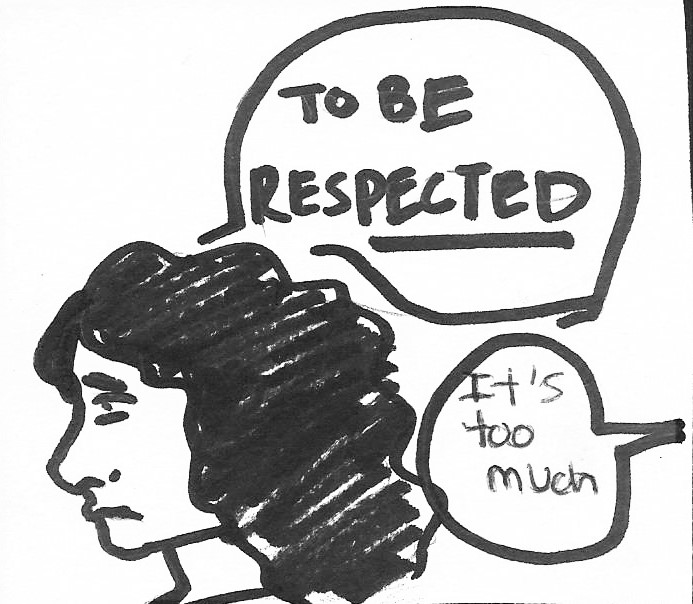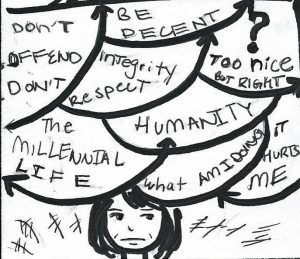By KIRA EDISON ’20
CONTRIBUTING WRITER
Respect. This word can quickly bring up images of Aretha Franklin belting her heart out and can cause that familiar tune to run through my head for hours. However, this seven letter word stirs up no connotations attached to the 2016 political season, and this could be a scary trend for the future of the word.
“I refuse to call Megyn Kelly a bimbo because that would be politically incorrect,” Donald Trump wrote on his Twitter feed. Yes, it would be politically incorrect to call a woman a bimbo, but it would also be disrespectful. It is also politically incorrect to call a group of human beings “a basket of deplorables,” and this, too, is disrespectful. This election season has confused the meaning of respect with political correctness, and related a negative definition to both words. On the other hand, “telling it like it is” is the new standard for American politics.
Political correctness should not cause politicians to tiptoe and whisper to avoid being heard speaking about real problems in our country, but it should serve as a guideline to discuss issues with the integrity and respect befitting of our leaders. It is politically correct to say that illegal immigration is an issue faced by the American people, and it is necessary to ensure that our borders are secure. On the other hand, it is politically incorrect to say that some ‘bad hombres’ are getting into our country, and we need to find a way to fix this issue. Both statements have the same message — illegal immigration is an issue –– but one way of framing the problem offers more than political correctness, it conveys a level of respect. There are times when “telling it like it is” is necessary to identify an issue, but “telling it like it is” should never cross over the line into disrespect.
The 2016 Presidential Election has become a laughing matter to many because the political atmosphere is so grossly congested with insulting rhetoric and outrageous scandals. The clouded atmosphere has made it difficult to identify what respect truly means, even when it is right in front of us.
The issue facing the waning regard for respect is incredibly relevant to this generation of college students because they are the future of the American political system. It is up to the next generation of politicians and leaders to define respect, whether it be replaced by the term politically correct and seen in a negative light, or whether it be a standard that must be met in dignified social situations.
Political correctness can go too far. Politicians cannot be allowed to skirt around issues and only portray the rainbows and butterflies of America, but respect can never be taken too far, so their definitions cannot be intertwined. “Telling it like it is” can be formulated respectfully, as well, and the proper implementation of it could be an important mechanism for policy makers; there must be a peaceful balance.
Next time you find yourself grimacing because someone was a little “too politically correct,” or standing appalled because someone lacked any degree of political correctness, take a moment to consider the distinction. The 2016 political season has erased the dictionary definition for respect, and scribbled in ‘politically correct’ as a synonym. Americans are unclear on what the social standard is for the twenty-first century, and everyone is on a different page. Take a moment to erase political correctness as a standard for American politicians and write in respectful in its place. In the end, views on political correctness will change with every political season, but the true measure of integrity and respect should remain a constant goal for as long as Aretha Franklin’s song is stuck in our heads.
The Seven Letter Word that Is Missing from Politics





+ There are no comments
Add yours